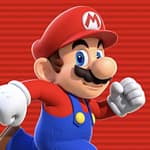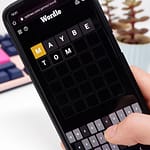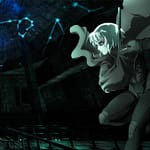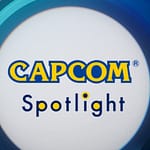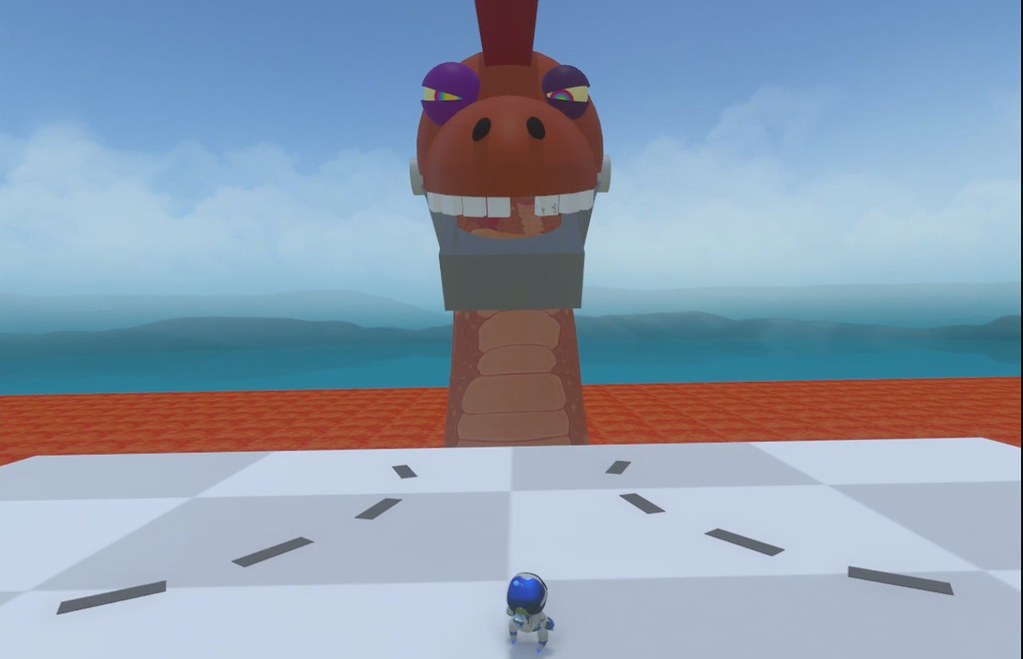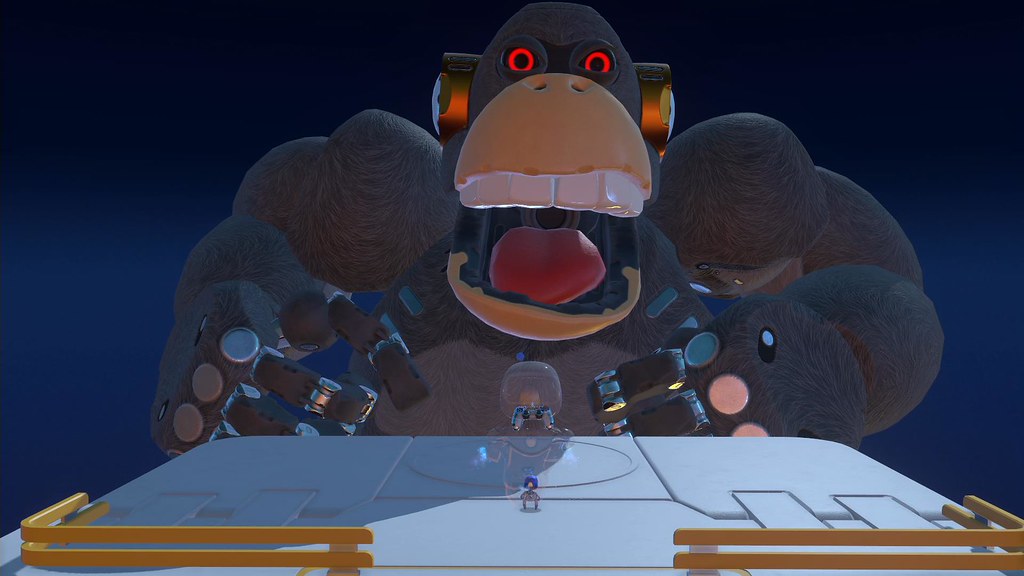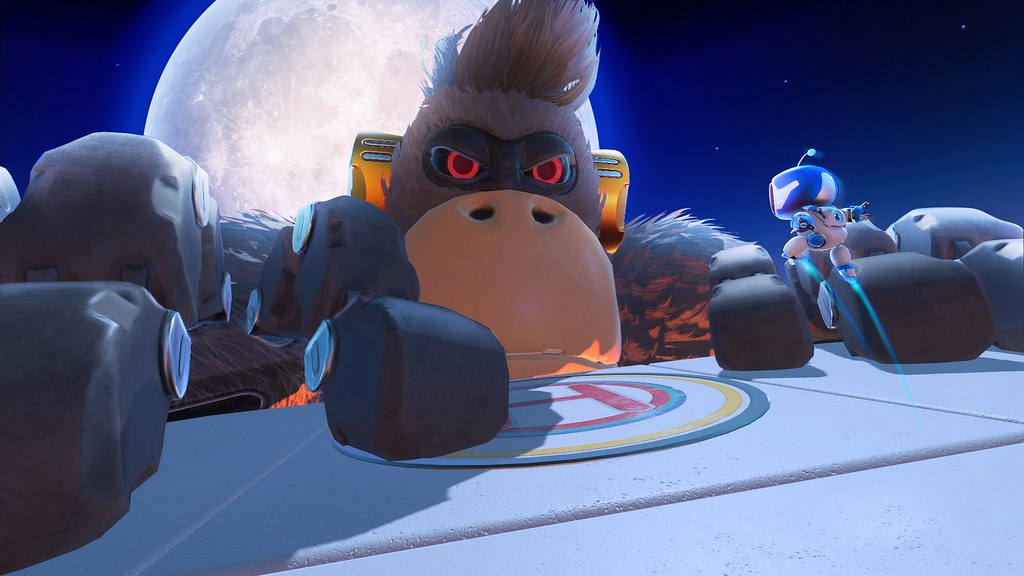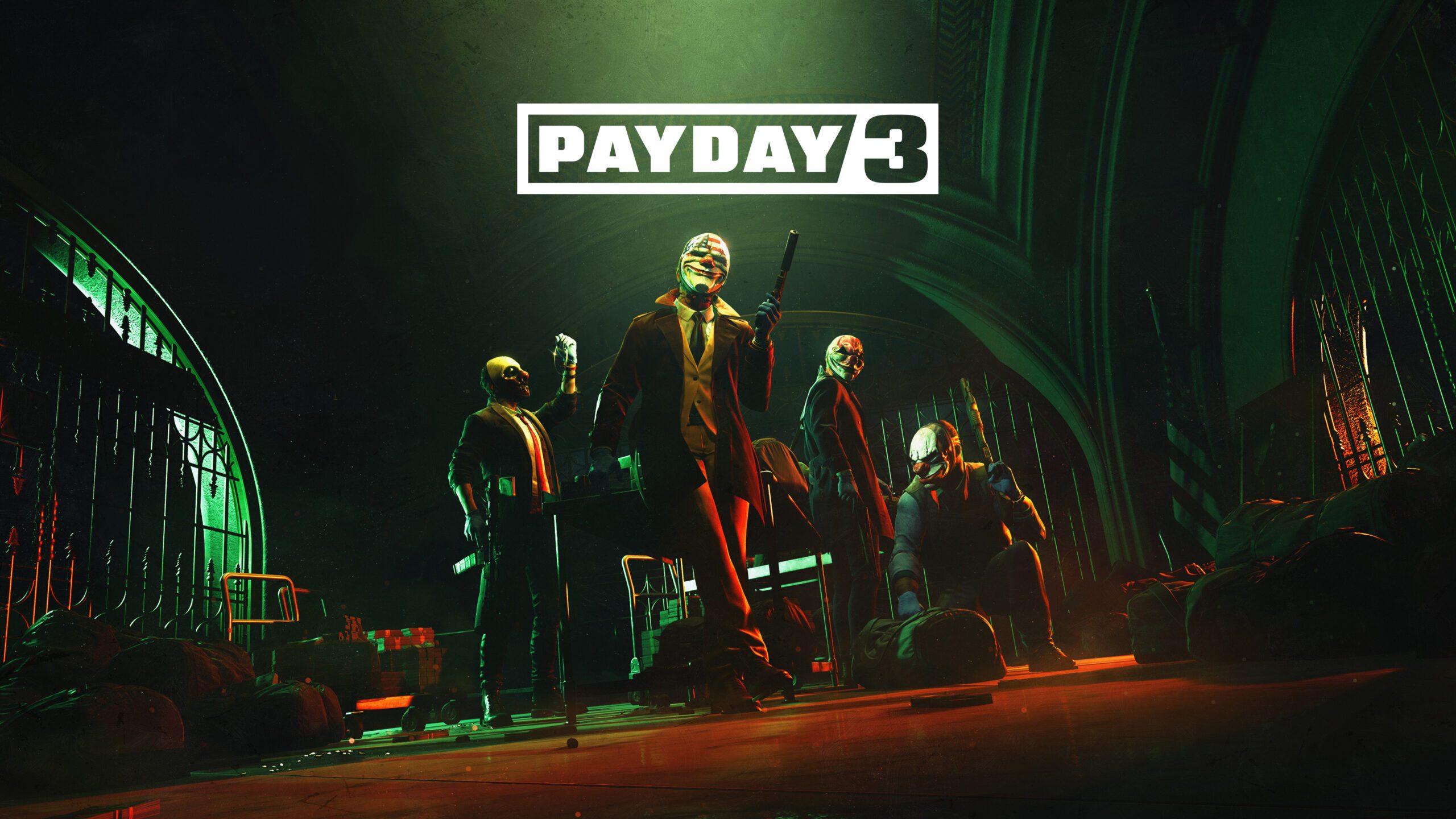Hello everybody, it’s a pleasure to be back at PlayStation.Blog for a new feature about PS VR platformer Astro Bot Rescue Mission. Today I would like to show you how the team came up with the various gameplay ideas that made it into the game. It all starts with a sticky note…
Since the forming of Asobi Team back in 2012, we’ve made a habit of brainstorming ideas regularly. Brainstorming is a relaxing time where anybody from the team gets to voice their ideas out in the open. The first thing we do is lock onto a specific area to dig into. We never discard any idea. Because an idea that sounds ridiculous today could be relevant tomorrow, or it could become the springboard of something better.
Ideas we think of are jotted down on colorful sticky notes that decorate our office walls. We keep it very visual because it’s more fun and accessible, and it fits well with our international team. It does mean everybody needs to be able sketch their ideas to some extent, but however basic it may look, what’s important is to get a clear, fun concept across.
After a brainstorm, ideas are categorized on the walls
In the case of Astro Bot, on one occasion, we were looking for “Boss ideas” — something huge that towered above the player and would feel like an epic battle. I clearly remember one of our designers drawing a huge gaping mouth with teeth you had to punch loose. A few discussions later, we added the hook shot and we had something we could take to the next level.
The original sticky note idea that led to the World 1 Boss of Astro Bot Rescue Mission
The sticky note is then handed over to one of our game designers who will flesh out more details about the gameplay and create a simple storyboard.
Once again, we keep things visual and avoid wordy descriptions. This ensures anybody on the team can get a grasp of the idea within seconds and without having to read too much.
The original design document before prototyping the boss battle
Once we’re happy with the plan, the storyboard is handed over to a gameplay programmer, who then creates a gameplay prototype. At this point, visuals do not matter — we’re looking for fun gameplay first and foremost. The gameplay prototype can take anywhere from a few days (for a small mechanic) to a few weeks (for a complex boss) until we are happy with it.
The first prototype of what would later become World 1 gorilla boss
The final stage is production. At this point, up to a half dozen people of various disciplines work together to bring the look and feel to what will be experienced by the player. This is when the dragon gave way to a gorilla to be more in phase with our city theme. The first version is always pretty rough — in this case our boss was missing its fluffy hair, headphones and dramatic lighting.
Over time, we refined every aspect of the encounter, improving the graphics and adding special effects, sounds of all sorts and other bells and whistles. Throughout the rest of production, we often do additional gameplay rebalancing until it feels just right. This is also when we turned the top of the building into a first-generation PlayStation console. Had you ever noticed?
The final World 1 gorilla boss
This way of working may seem simple. And it is. It’s a very useful way to try out lots of innovative ideas quickly while involving everyone in the thinking process too!
Thank you for reading today’s story! Let us know what you think in the comments below — and just like our colorful notes, be sure to stick to PS Blog for more Astro Bot Rescue Mission behind-the-scenes!

